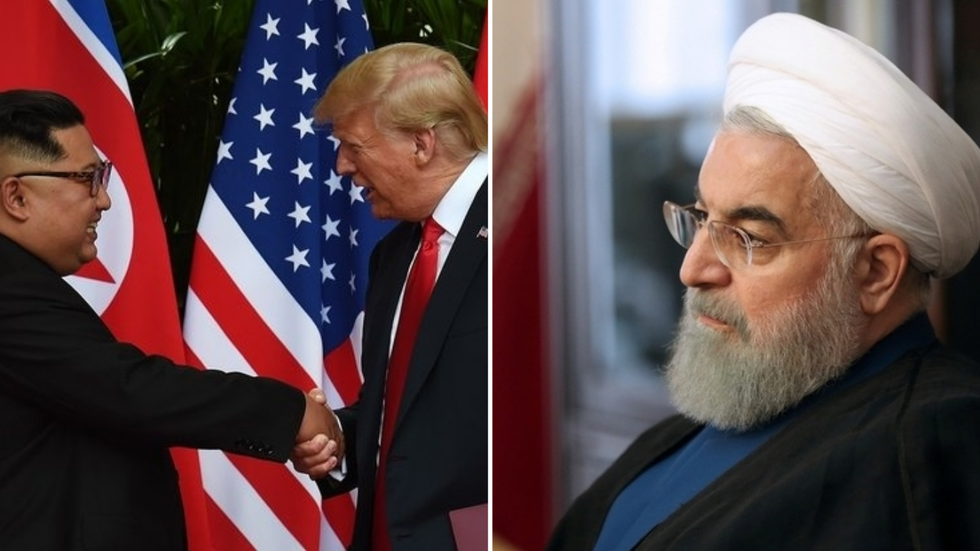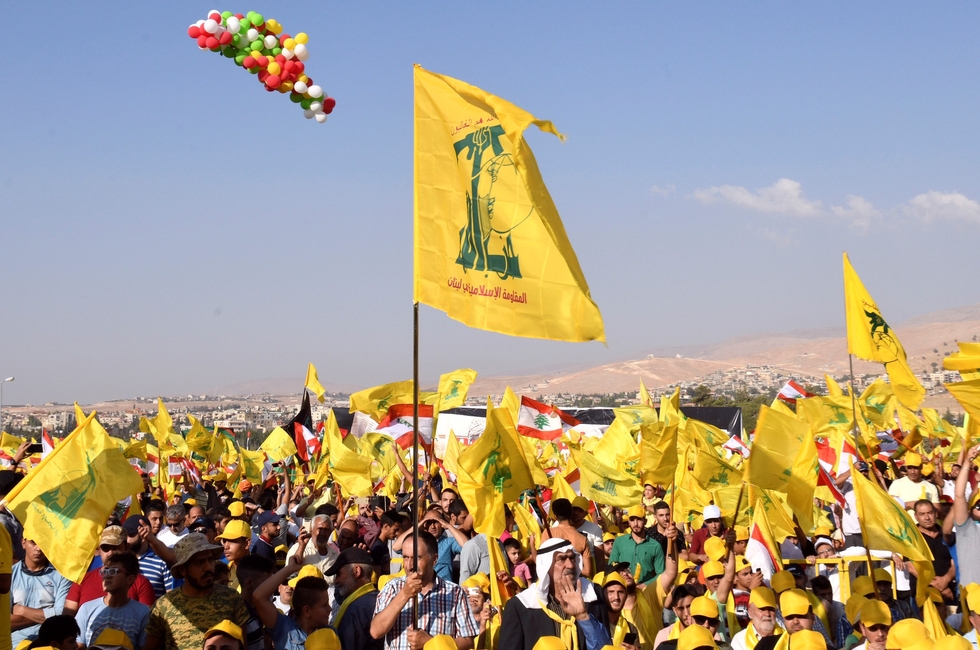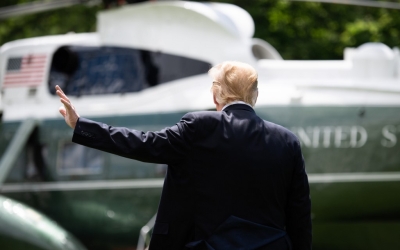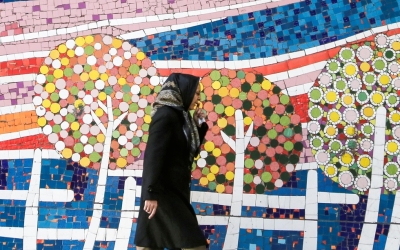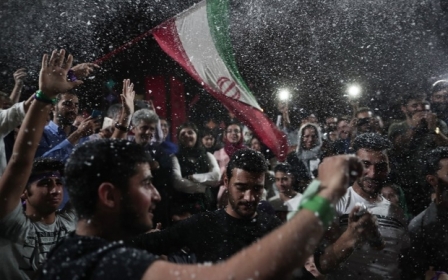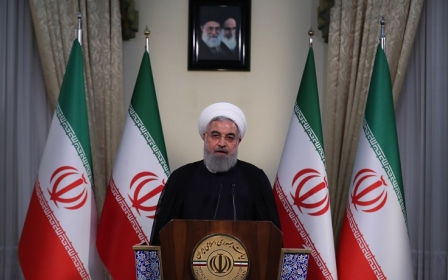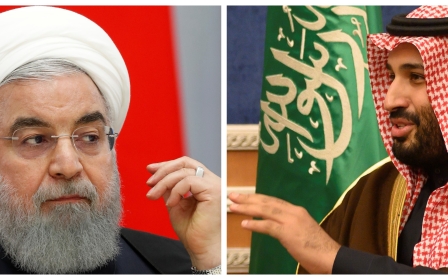US-Iran crisis: A misleading narrative makes conflict more likely
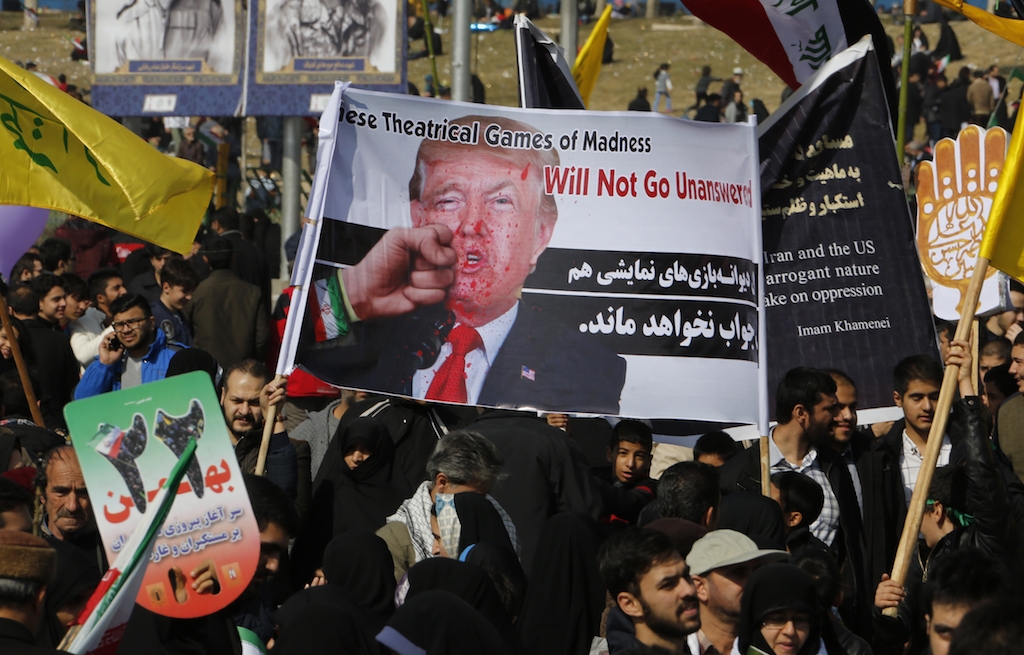
The recent escalation of tensions between Iran and the United States has led to the now all too predictable wave of commentary and analysis from the Beltway and beyond about the capabilities and intentions of these two erstwhile foes.
Newspaper headlines abound with "drums of war"-type content, with so-called analysts, hacks, and sometimes academics offering their own hot takes, all the while feeding into a narrative dominated by talk of US "interests" and Iranian "proxies".
A 'hot take'
What this current "flare up" shows us is not the unparalleled power of American might, nor the passive acquiescence of certain regional actors to Iranian interests; it is what happens when a US president ties their whole foreign policy to a transactional approach that makes it subservient to the financial clout of its regional allies.
The US violation of the Iran nuclear deal, agreed as it was between Iran and world powers, is rarely cited as such
This "hot take" is going to start by focusing on language, because this is part of the problem, one that is reinforced by the reproduction of problematic terms by the media and analysts alike.
New MEE newsletter: Jerusalem Dispatch
Sign up to get the latest insights and analysis on Israel-Palestine, alongside Turkey Unpacked and other MEE newsletters
There needs to be a change of focus and until this happens, the media and academic mainstream will be complicit in the continued abuse of American power.
Any informed reader will know how we got here. It started with Trump’s violation of the Joint Comprehensive Plan of Action (JCPOA), otherwise known as the Iran nuclear deal. And let us just pause a moment here to think of the language used.
The US violation of this deal, agreed as it was between Iran and world powers, is rarely cited as such. Instead, we see repeated use of "withdrawal" "pulling out", "leaving", which all help sanitise a clear international treaty violation by the current US government.
When attention is turned to Iran’s own response of scaling back certain JCPOA obligations, coming as it did a whole year after the US violation, we hear shrill cries of Iran no longer complying and "abandoning" the deal.
The view from Tehran
The same goes for the next iteration of Trump and his team’s attempts to further pressure Iran through its blacklisting of the Islamic Revolutionary Guards Corps as a "terrorist organisation".
The IRGC wields considerable power within the Iranian polity in terms of its wide-raging economic interests, and Iranian President Hassan Rouhani has sought to curb this influence. However, the designation by the US merely served to strengthen its domestic legitimacy.
The language employed by US officials, their subservient mouthpieces and their regional allies is one of "threats"
In terms of its foreign activities however, it has been at the vanguard of protecting Iran’s national security from threats, scoring notable victories against the Islamic State group (Daesh) and other groups, often funded by Western countries' regional allies.
Here is where we need to stop and gain some insight into how these conflicts, such as in Iraq and Syria, are viewed by Iran.
Iran’s involvement is seen through a defensive lens. It ties Iraq and Syria to its own national security as a means of protecting itself from the extremist threat it faces. However, defence of Iranian national security becomes "terrorism" when it goes against US interests.
The language employed by US officials, their subservient mouthpieces and their regional allies is one of "threats". These are threats to US and allies’ interests that are perceived as emanating from the Islamic Republic, and here we come to another problematic term, that of Iranian "proxies".
A common refrain is that Iran will utilise so-called proxy forces against US troops stationed in the region, or against its allies. Indeed, some have pinned this latest escalation on such an issue, citing missile deployments amongst Popular Mobilisation Units in Iraq.
However, the use of the term proxy is a misnomer which denies such groups any sense of agency, seeing them as purely subservient to directives coming from Tehran.
Same old fabrications
Any serious analyst of Middle Eastern affairs will tell you that the alleged Iranian support for the Houthis in Yemen is not that of a proxy or client-type relationship, but rather a convenient story to justify one of the most brutal and inhumane conflicts seen in the region, and yet still we see the same old fabrications regurgitated about the levels of Iranian support.
Iran has allies in Iraq and Lebanon, yes, but these are an indelible part of the political fabric in those countries
Iran has allies in Iraq and Lebanon, yes, but these are an indelible part of the political fabric in those countries.
The PMUs and Hezbollah are political actors in their own right, with their own agency, and while they may be supportive of and receive support from Iran, it does not mean that they are mere proxies – they have their own respective national focuses alongside wider common causes that they share with the Islamic Republic.
No one can deny their utility for Iran in helping defend itself, but they are not going to take the sort of pre-emptive action against US troops or interests of which they’ve been accused of preparing for, as this would be a provocation that goes against their own local and wider alliance interests.
They are targeted by the US as a means of pandering to Saudi and Emirati hegemonic desires in the region. Why? Well perhaps we should follow the money.
Transactional Trump
This is what happens when you sell your foreign policy to the highest bidder. It has been widely reported that high-ranking members of Trump’s team support the Mojahedin-e Khalq, a cult hellbent on overthrowing the Iranian government.
US thinktanks are awash with money from the Arab side of the Persian Gulf, and still their commentary and partisan analysis pollutes the air waves. The language we see used in the mainstream media is an amplification of these interests.
US foreign policy has become purely transactional under Trump, as his regular boasts about Saudi investment demonstrate.
The result is that the US is in thrall to Saudi and Emirati interests in the region - not that this is anything new of course, but the fact that US allies feel so emboldened as to campaign for US surgical strikes against Iran shows just how entangled their interests have become.
When foreign policy operates in a moral vacuum and reflects the whims and desires of money, there is little room for developing a coherent foreign policy. What we see instead are brazen statements that seek to demonise a country which defends its independence.
It is here where the risk of miscalculation is most fraught, and where the need for sensible mediation by non-compromised actors can help.
A tumultuous chapter
Recent days have seen statements from Iraq and Qatar, Pakistan and Oman about the need to defuse tensions. Europe continues to grapple with ways to salvage the JCPOA, and China has again begun importing Iranian oil, in defiance of enhanced US sanctions against Iran.
These developments shows that far from being the isolated pariah the US wishes it to be seen as, Iran is in fact a normal country with diplomatic allies acting to secure their own national interests. Tehran has not spent 40 years resisting US imperialism in the same way as North Korea, becoming a hermit kingdom in the process.
Rather, it has utilised multifaceted confessional and cultural linkages and mastered tactful diplomacy as seen with the JCPOA. Its independence necessitates a defensive posture, and any bellicosity from Tehran at this juncture is borne of a desire to defend that independence.
If world leaders can ride out the tumultuous chapter in US political history that the Trump presidency represents, then we can look forward to sane and reasoned debate when it comes to Iran, hopefully without the constant threat of war.
The views expressed in this article belong to the author and do not necessarily reflect the editorial policy of Middle East Eye.
Middle East Eye delivers independent and unrivalled coverage and analysis of the Middle East, North Africa and beyond. To learn more about republishing this content and the associated fees, please fill out this form. More about MEE can be found here.



